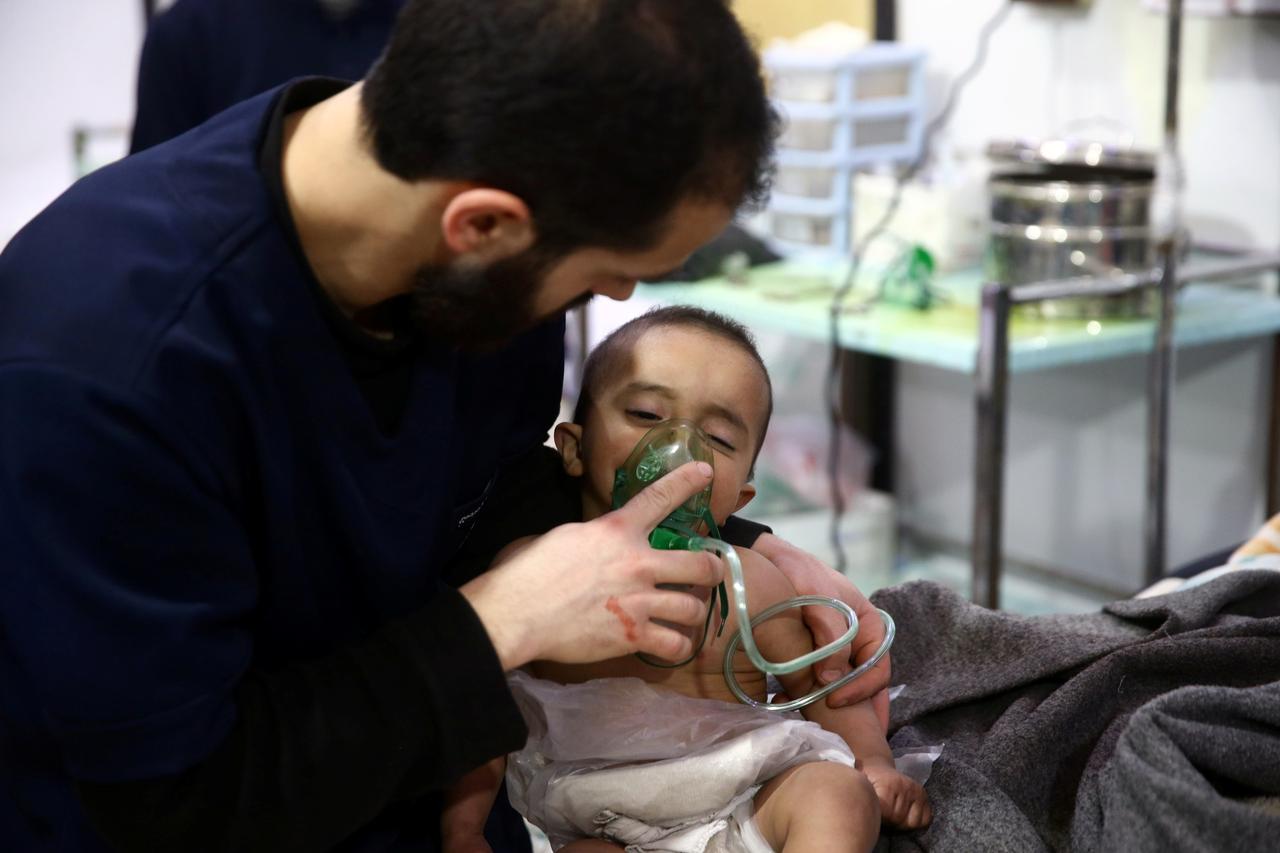How the world abandoned Syria
https://arab.news/bj77x

In Syria today, a cease-fire in Idlib province continues to hold, but it offers no long-term solution for the many Syrians trapped between the border with Turkey and the hostile Assad regime. As events of the last few months have clearly indicated, much of the world has abandoned the people of Syria.
Many global leaders just want the Syrian civil war to end and appear to have accepted that Bashar Assad will rule most or all of the country. In January 2019, US President Donald Trump said: “Syria was lost long ago… We’re talking about sand and death.” While Trump faced criticism for these comments, the reality is that he accurately summed up how much of the world feels about Syria.
At the start of the war, many global and regional powers were appalled by the Assad regime’s brutal response to protests — brutality that only escalated with time, leading to the deaths of many thousands of Syrians, stunning human rights abuses, and the use of chemical weapons against civilians. Over time, however, global and regional actors developed a sense of fatigue and helplessness regarding Syria.
With the exception of Russia, outcomes in the Syrian war reflect global inaction more than action. However, the world was not helpless, and key turning points led to the situation in Syria today.
In 2012, US President Barack Obama warned Assad not to use chemical weapons, calling it a “red line.” A year later, Assad’s forces used sarin gas in a horrific attack. It was the moment for Washington to reinforce the global norm against chemical weapons, as well as US credibility, but Obama postponed military action. The decision by the UK parliament not to participate in any military response apparently played a role in Obama’s delay. A month later, Washington agreed a deal with Moscow to remove and destroy Syria’s chemical weapons. However, this did not stop the Syrian regime from using chemical weapons against civilians many more times. Under Trump, the US has twice conducted strikes on Syria in response to the regime’s use of chemical weapons; however, these moves exist within an environment in which Trump has taken other steps to reduce America’s involvement in Syria.
Many Syrians expected more support from the US and Europe, which claim to support democracy and human rights. However, the Western response was heavily influenced by the experience of the Iraq War, which made their leaders and publics question the efficacy and cost of such interventions. The US briefly ran a program designed to vet and train Syrian rebels, but it was more focused on fighting Daesh and did not last long.
The rise of Daesh in Syria in 2014 led many Western and Gulf countries to militarily intervene, specifically focused on combating the terror group. Working closely with Kurdish forces, which were essential on the ground, the coalition conducted extensive air strikes. While the campaign against Daesh was largely successful, it sent the clear message that the US and Europe were willing to intervene to defeat such groups, but not to support movements for democracy.
In 2015, Russia significantly increased its support for the Assad regime, primarily by providing airstrikes to back its forces. This Russian assistance, combined with significant Iranian and Hezbollah forces on the ground, turned the tide of the war in Assad’s favor. It became clear that Russia was more willing to invest in extending its influence in the region and undercut the US than Washington was willing to invest to maintain its influence and defend democracy and human rights.
The refugee crisis of 2014 to 2016 demonstrated that the effects of the Syrian war would not be contained and could have major consequences for Europe and elsewhere. However, it led European leaders to look for a quick end to the war, increasing their willingness to accept Assad rule. Refugee flows and Syrian Kurds’ growing autonomy also led to a change in Turkish policy, which shifted to focus on solutions that might allow Syrian refugees in Turkey to return home and on crushing Kurdish forces and independence.
Trump came into office in 2017 with an “America First” foreign policy and a desire to avoid US involvement in Middle Eastern conflicts. The Trump administration was willing to fight Daesh; however, once that threat receded, Trump was keen to pull out, including talking about withdrawing US forces that were critical to supporting the Kurds. In October last year, he did so, pulling out US troops that had effectively stood between the Kurds and Turkish forces. The few US forces remaining in Syria are focused on counterterrorism and containing Iranian influence.
With the exception of Russia, outcomes in the Syrian war reflect global inaction more than action.
Kerry Boyd Anderson
Throughout the war, there have been multiple peace efforts. Multiple UN officials have worked hard but without success. Efforts by countries involved in the war have produced cease-fires but no lasting solution.
While much of the world wants the war to end, whatever the cost, the problem is that an Assad-led Syria is likely to present long-term risks of radicalization, terrorism and instability. It also would make it difficult for refugees to return. The regime is not trying to unite and heal the country but rather to engineer post-Syrian society to its advantage. This will leave many Syrians excluded from basic economic and political opportunities, unsure of their safety, and without the type of reconciliation that might lay the foundation for long-term recovery.
- Kerry Boyd Anderson is a writer and political risk consultant with more than 16 years’ experience as a professional analyst of international security issues and Middle East political and business risk. Her previous positions include deputy director for advisory with Oxford Analytica and managing editor of Arms Control Today. Twitter: @KBAresearch










































